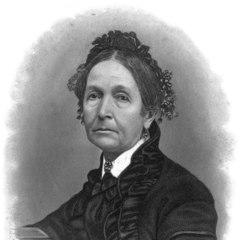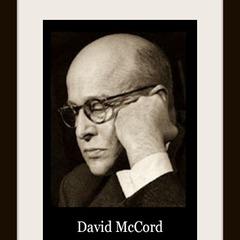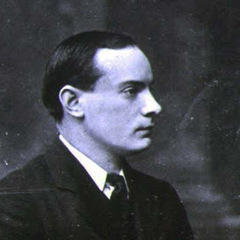Edward Young Quotes - Page 6

Edward Young, John Doran, James Nichols (1854). “The Complete Works, Poetry and Prose of the Rev. Edward Young, LL.D.: Revised and Collated with the Earliest Editions. To which is Prefixed A Life of the Author”, p.168
Edward Young, Charles Edward DE COETLOGON (1793). “Night thoughts on life death and immortality ... to which are added the life of the author and a paraphrase on part of the Book of Job”, p.161
Edward Young, John Doran, James Nichols (1854). “The Complete Works, Poetry and Prose of the Rev. Edward Young, LL.D.: Revised and Collated with the Earliest Editions. To which is Prefixed A Life of the Author”, p.354
Ah, how unjust to Nature and himself Is thoughtless, thankless, inconsistent man!
Edward Young (1856). “Night Thoughts, etc”, p.16
'The Complaint: Night Thoughts' (1742-5) 'Night 1' l. 1
John Milton, Edward Young, Thomas Gray, James Beattie, William Collins (1836). “The Poetical Works of Milton, Young, Gray, Beattie, and Collins”, p.201
Beautiful as sweet, And young as beautiful, and soft as young, And gay as soft, and innocent as gay!
'The Complaint: Night Thoughts' (1742-5) 'Night 3' l. 81
Edward Young, Charles Edward DE COETLOGON (1793). “Night thoughts on life death and immortality ... to which are added the life of the author and a paraphrase on part of the Book of Job”, p.234
Edward Young, John Doran, James Nichols (1854). “The Complete Works, Poetry and Prose of the Rev. Edward Young, LL.D.: Revised and Collated with the Earliest Editions. To which is Prefixed A Life of the Author”, p.3
Distinguisht Link in Being's endless Chain! Midway from Nothing to the Deity!
Edward Young (1743). “The complaint, or, Night-thoughts on life, death, & immortality”, p.15
Edward Young, John Doran, James Nichols (1854). “The Complete Works, Poetry and Prose of the Rev. Edward Young, LL.D.: Revised and Collated with the Earliest Editions. To which is Prefixed A Life of the Author”, p.146
Edward Young (1839). “Night thoughts on life, death, and immortality. [Followed by] A paraphrase on part of the book of Job”, p.206
On every thorn, delightful wisdom grows, In every rill a sweet instruction flows.
Edward Young (1792). “The works of the author of the night-thoughts”, p.81
Edward Young (1837). “The Complaint and Consolation; Or, Night Thoughts on Life, Death and Immortality: To which is Added, The Force of Religion”, p.23
'The Complaint: Night Thoughts' (1742-5) 'Night 1' l. 18
Unlearned men of books assume the care, As eunuchs are the guardians of the fair.
Edward Young, John Doran, James Nichols (1854). “The Complete Works, Poetry and Prose of the Rev. Edward Young, LL.D.: Revised and Collated with the Earliest Editions. To which is Prefixed A Life of the Author”, p.357
Edward Young, Samuel Johnson (1822). “The Poems of Edward Young”, p.29
Edward Young, John Doran (1854). “The complete works, poetry and prose, of ... Edward Young. Revised [by J. Nichols]. To which is prefixed, a life of the author, by J. Doran”, p.32
Who knows if Shakespeare might not have thought less if he had read more?
Edward Young, Samuel Richardson (1759). “Conjectures on Original Composition: In a Letter to the Author of Sir Charles Grandison”, p.81
The Love of Fame Satire 7, l. 55 (1725 - 1728) See Porteus 1; Jean Rostand 1
Edward Young (1802). “The works of the author of the Night-thoughts. Revised and corrected by himself”, p.311
Death! great proprietor of all! 'tis thine To tread out empire, and to quench the stars.
Edward Young (1821). “Night Thoughts on Life, Death, and Immortality”, p.13
Edward Young, Charles Edward DE COETLOGON (1803). “Night Thoughts ... With notes ... by the Rev. C. E. de Coetlogon ... To which are added the author's poem on the Last Day, the paraphrase on part of the Book of Job [with other poems], and his life”, p.172
Edward Young, John Doran, James Nichols (1854). “The Complete Works, Poetry and Prose of the Rev. Edward Young, LL.D.: Revised and Collated with the Earliest Editions. To which is Prefixed A Life of the Author”, p.358






